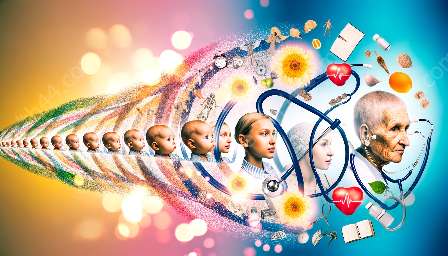Early adulthood is a critical and transformative phase in the lifespan, marked by profound physical, cognitive, emotional, and social changes. This period, which spans from approximately 18 to 40 years old, holds significant implications for lifelong development and health education, making it crucial for medical training to understand its complexities.
Physical Development
During early adulthood, individuals typically experience peak physical strength and endurance. However, this period also presents new health challenges, including the establishment of long-term health behaviors and the potential onset of chronic conditions. Moreover, lifestyle choices such as diet, exercise, and substance use significantly impact overall health in later stages of life, making early adulthood a critical time for health education interventions.
Cognitive and Emotional Changes
Early adulthood is characterized by the continued development of cognitive abilities and the formation of a mature identity. This phase involves exploration of career paths, personal values, and relationships, shaping individuals' emotional well-being and mental health. Understanding the interplay between cognitive and emotional changes during this period is essential for promoting mental well-being and effective medical training.
Social Interactions and Relationships
As individuals navigate early adulthood, they establish new social connections, form intimate relationships, and potentially become parents. These social milestones profoundly influence mental health, stress levels, and overall well-being. Health education needs to address the complex interplay between social interactions and mental health, while medical training should equip professionals to understand and support patients through these critical life transitions.
Implications for Lifespan Development
Early adulthood serves as a foundation for lifelong development, with experiences and decisions made during this period shaping health outcomes in later stages of life. It is a time when individuals establish habits that impact long-term health, making it imperative for health education to address preventive care and healthy lifestyle choices among young adults. Furthermore, understanding the implications of early adulthood on lifespan development is essential for medical training to provide comprehensive care across the entire continuum of life.
Health Education and Medical Training
Health education in early adulthood should focus on promoting healthy behaviors, mental health awareness, and the management of unique health challenges faced during this phase. Programs aimed at informing and empowering young adults can contribute to improved long-term health outcomes and reduced healthcare disparities. In parallel, medical training must incorporate a deep understanding of early adulthood to better address patients' needs and provide holistic care that considers the complex interconnections between physical, cognitive, emotional, and social aspects of health.


